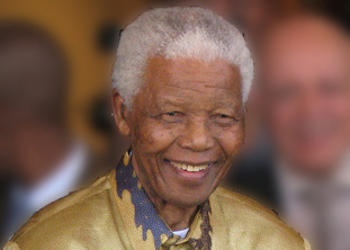Nelson Mandela - Man of Peace

Nelson Mandela was a rare man. He managed to hold together conflicting forces and forge a workable nation at a time when most thought open civil war would break out. For that singular feat he should be remembered with respect.
I did not know much about Mandela when he was released from a South African prison in 1990. What I did know was biased and ill-informed. An imprisoned black man in far off South Africa was little noticed by most. Though the world had begun to focus on the despicable apartheid policies and was bringing pressure on the minority white government to end this system forever, still, Mandela and his country was far away.
Then, in 2000, I traveled to South Africa and heard a comment that made me take notice about Nelson Mandela. I visited a white farmer in Kwa-Zulu Natal who had large holdings of tea and sugar cane. He employed many black workers and managed to survive and thrive within the changing cultural and economic landscape.
Once he told me he even narrowly avoided a planned ambush by extremists, laid specifically for him. “If not for Mandela”, he said, “we (whites) would have all been killed in 1994 when majority rule came. Mandela held back the anger that wanted to bring the country to riots and chaos”. That made me think deeply about what one man’s actions can do prevent violence and division.
Mandela had spent his years in prison thinking deeply about his enemy. He learned the difficult Afrikaans language. He studied the ways of the unique Anglo-Dutch culture. When he was released he had come to point where he realized reconciliation was a better path forward than continued resentment that would lead to anarchy for his people. Mandela chose cooperation. He enters history as a man who changed and worked to bring together diverse people divided by race, language and culture. His example is frankly a classic study in reconciliation. All of us would do well to study Mandela’s life and example.
Christ said, ‘blessed are the peacemakers”. May God bless the efforts of any who work for peace between all men.
